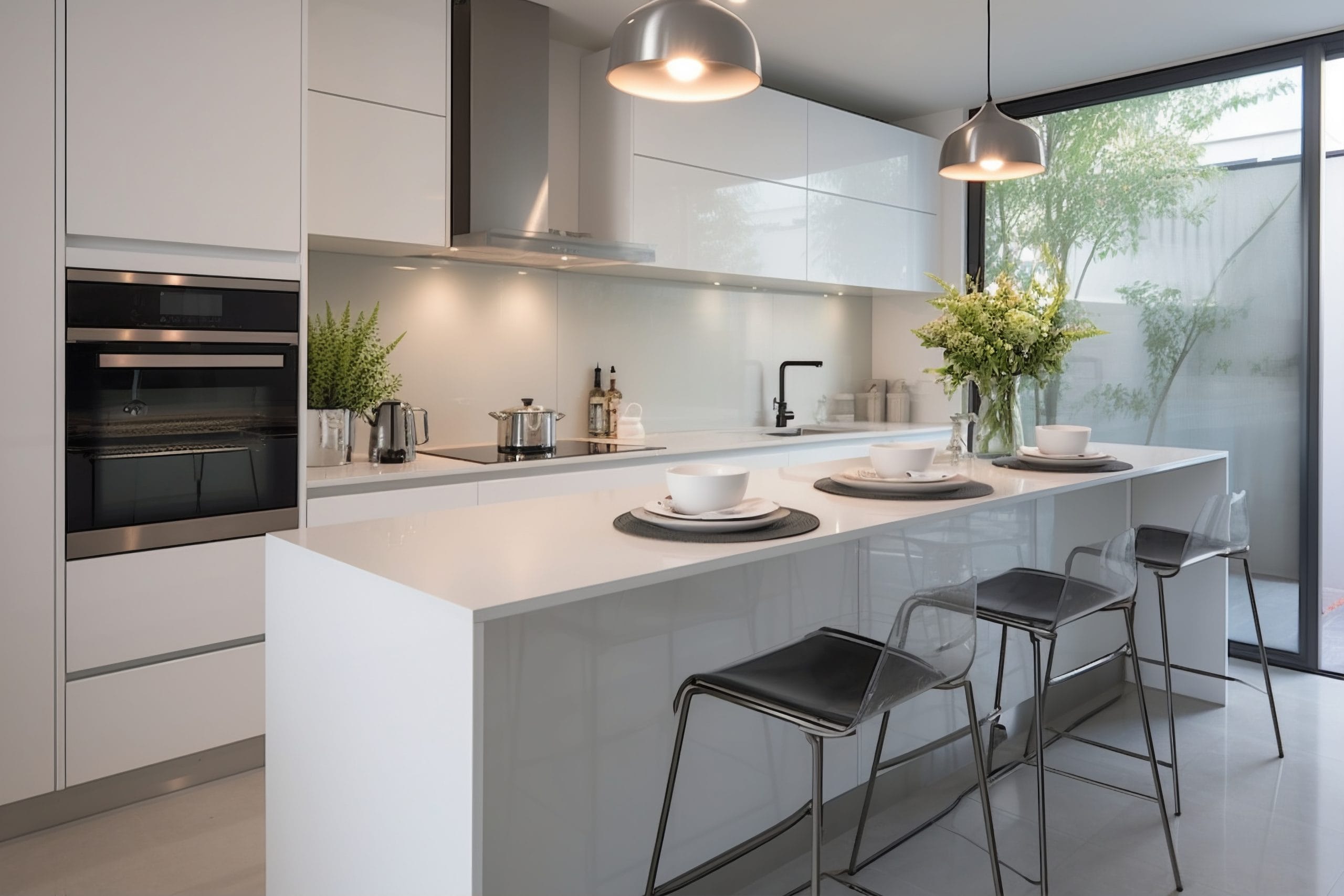When I think about a kitchen or bathroom remodel, one of the first things that comes to mind is the countertop. It’s more than just a surface to prep meals or brush your teeth—it’s the centerpiece of the entire room. A beautiful countertop can elevate the entire space and set the tone for the design. I remember a client who was hesitant about their kitchen remodel, unsure about making such a big change. After choosing a striking quartz countertop with subtle veining, the entire space transformed. Suddenly, their kitchen felt sophisticated, elegant, and timeless.
Countertop installation can be the most impactful part of a renovation. It not only defines the aesthetic of your kitchen or bathroom, but it also plays a crucial role in the functionality of the space. Whether you’re looking for durability, style, or something unique, there are numerous options to consider—granite, marble, quartz, or even butcher block. But finding the perfect material for your lifestyle is key to ensuring that your new countertop works for you.
Choosing the Right Countertop Material
When selecting the right countertop material, it’s important to consider both the look you want and how much maintenance you’re willing to put in. Let’s break down some of the most popular options:
Granite Countertops: Known for their strength and natural beauty, granite countertops are a staple in kitchens and bathrooms. Each slab is unique, with its own pattern and color, making it a great option if you want something one-of-a-kind. It’s resistant to scratches and heat, which is perfect for kitchens. However, it does require sealing to prevent staining.
Marble Countertops: If you’re looking for luxury, marble is hard to beat. With its elegant veins and timeless appeal, marble adds an air of sophistication to any space. However, it’s more prone to staining and scratching compared to granite, so it requires more maintenance. It’s a great choice for bathrooms, where its cool touch and refined look can make a bold statement.
Quartz Countertops: Quartz is a man-made material that combines the beauty of natural stone with enhanced durability. It’s non-porous, making it resistant to stains and bacteria—ideal for kitchens. With a wide range of colors and patterns, quartz can mimic the look of natural stone while providing a more low-maintenance option.
Butcher Block Countertops: For a warm, rustic feel, butcher block countertops are a great choice. They add texture and warmth to a kitchen and are perfect for food preparation. However, they require regular oiling and care to prevent damage from moisture and knife marks.
Concrete Countertops: Concrete is an increasingly popular option for modern, industrial-style kitchens and bathrooms. It can be customized with various colors and textures, and it’s incredibly durable. However, it may crack over time, so regular maintenance and sealing are necessary to preserve its appearance.
The Installation Process
Once you’ve selected your countertop material, it’s time to move on to installation. Depending on the material, countertop installation can be a bit tricky, which is why many homeowners opt for professional help. Here’s a brief look at the typical process:
Measurements and Template: Before any countertops can be cut or fabricated, precise measurements need to be taken. A template is created to ensure that the new countertops fit perfectly within your space. This is particularly important for irregularly shaped kitchen or bathroom layouts.
Fabrication: Once the template is approved, the fabricator will cut and shape the countertops to your exact specifications. For natural stone countertops, this process may take a little longer due to the complexity of cutting granite or marble.
Delivery and Installation: Once your countertops are fabricated, they are carefully transported to your home for installation. The installation process typically takes a few hours, and once the countertops are in place, they are sealed to protect against stains and damage.
Finishing Touches: After installation, finishing touches like edging and caulking around the sink and backsplash are completed. Your countertops are then ready to be used.
Why Professional Installation Matters
While DIY countertop installation is an option, it’s often best to leave it to the professionals. Professional installers have the tools, experience, and expertise to handle the complexities of countertop installation. They ensure that the job is done correctly and safely, saving you time and avoiding costly mistakes. Plus, many companies offer warranties on their work, providing added peace of mind.
A Final Touch to Your Remodel
Countertop installation is one of the most exciting parts of a kitchen or bathroom remodel. Whether you’re opting for the elegance of marble or the durability of granite, your countertops will be the focal point of the space. Don’t rush the decision—take the time to choose the right material that not only fits your style but also suits your practical needs.
In the end, installing a new countertop isn’t just about choosing a surface for your kitchen or bathroom. It’s about making a statement, adding functionality, and creating a space that you’ll love for years to come. So go ahead—embrace the possibilities and let your countertop shine!

